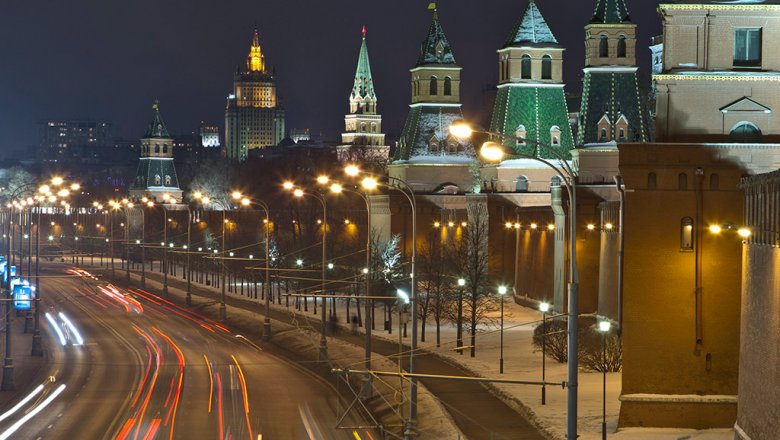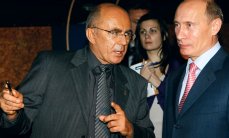In the Kremlin will discuss the possible reduction in the number of “foreign agents”
In the Kremlin under the guidance of Sergei Kiriyenko is preparing a consultation on possible amendments to the law on NGOs — foreign agents. It was initiated by the Committee of civil initiatives Alexei Kudrin and the HRC.

A meeting in the Kremlin
In the Kremlin until the end of the year may held a meeting on possible amendments to the law on NGOs — foreign agents, told RBC a source in the Committee of civil initiatives (THD) Alexei Kudrin.
See also the Public chamber urged to equate NGOs to small business
It is prepared under the guidance of the first Deputy head of the presidential administration Sergei Kiriyenko, the prior consent of Vladimir Putin at the meeting has been received, says the interlocutor of RBC.
“It will be a meeting in the presidential administration, it initiated the OIG Alexey Kudrin and the HRC (Council on human rights under the President of Russia. — RBC), but who will take part in it [the Kremlin] is unknown”, — told RBC the head of the HRC Mikhail Fedotov. Similar meetings in the trilateral format — the presidential administration, the HRC and the CHY — were not carried out before the RBC. The meeting is expected to take place before the end of the year, said a source in the OIG.
“We try to spend it as fast as possible — up to the meeting with the HRC, which is traditionally held in the second half of the year,” adds Fedotov.
New amendments
The law on NGOs — foreign agents today, according to Fedotov, allows to include in the register all in a row:
“The concept of “political activity” is very broad. The law is interpreted arbitrarily, but the arbitrariness is unacceptable. We can’t leave the wound unhealed,” — said the head of the HRC.
How to change the law on NGOs
The law on NGOs — foreign agents was adopted in 2012, after which there is a special registry of NCOs — foreign agents, which is kept by the Ministry of justice. The foreign agents recognize those organizations that receive funding from abroad and engaged in political activities.
Read also Russia’s NPO will receive from the budget more than health care
Russia’s NPO will receive from the budget more than health care
The law immediately drew criticism from the human rights community. Human rights activists have repeatedly stated that the notion of “political activity” in the document is interpreted very widely, and its main provision allows to include in the register any NGO.
In 2015, Putin gave an assignment to define the concept “political activity”. This was developed by a working group headed by first Deputy head of the presidential administration Vyacheslav Volodin, the active involvement of the Ministry of justice.
In the spring of 2016, a group of deputies submitted to the state Duma by the Ministry of justice developed a bill that was proposed a concept of “political activity”. However, human rights activists remained dissatisfied.
The head of the HRC Fedotov said that the President’s order is not executed because the new definition still allows to include in the register those NGOs that were in it.
Before voting for the bill in the second reading took place the meeting with Volodin, which was developed amendment allowing withdraw from the law charitable organization. Duma the amendment adopted.
See also International society “memorial” included in the list of NGOs registered as foreign agents
International society “memorial” included in the list of NGOs registered as foreign agents
A source in the COMMITTEE told RBC that Kudrin is preparing to raise the issue of private universities. They are, in his words, have the status of NGOs, many cooperate with foreign partners, have international programs, and there is a risk “to be entered in the register of foreign agents, and it will kill all of their activities”.
Fedotov agree that the danger for private universities is: “They conduct round tables, seminars on political topics and lectures. This can be interpreted as political activity. And if the University learns at least one foreign student pays for his education, then a literal interpretation of the law obliges to include this institution in the registry of foreign agents”, — said the head of the HRC.
Member of the COMMITTEE, economist Yevgeny Gontmakher said the Committee is preparing an amendment, which prescribes that the law on NGOs — foreign agents does not extend to private higher education institutions having the state accreditation and the license for educational activity.
See also “Levada-Center” was fined 300 thousand rubles for failure to register noagenda
“Levada-Center” was fined 300 thousand rubles for failure to register noagenda
At the present time, the law displays only state universities, emphasizes Gontmaher. For its part, the HRC will offer other amendments to the law on NGOs — foreign agents, says Fedotov. What, he let RBC refused.
“The law should be written so that in case Russia could not intervene in the foreign state — this is what the President said when the bill was only designed. If our new proposals agree, then the list of NCOs — foreign agents will be reduced by 20 times”, — said the head of the HRC. Now in the registry of foreign agents are 148 NGOs. 18 of them “stop the functions of a foreign agent”, and 26 “ceased operations in connection with the liquidation”.
A member of the Public chamber and a former member of the HRC Elena Topoleva-Soldunova told RBC that the Council has many different amendments that have been previously developed, so that “nothing new can by and large do not need”.
For example, the amendment that links the concept of “political activity” with the struggle for power.
“There is the amendment which provides that, before NGOs will be included in the Ministry of justice in the foreign agent, its activity in the interests of a foreign principal must prove to the court,” said Topoleva-Soldunova.
Broken the law
For the past two years the government has done a lot for those NGOs that provide social services, reminded Topoleva-Soldunova. The situation is different from those included in the registry of foreign agents or not included, but receives foreign funding.
The trend is that everything foreign is bad, dealt NGOs a lot of damage, and this must have something to do.Elena Topoleva-Soldunova of the Public chamber
Because the law is not working, change it hopeless and, therefore, it is better to cancel, says Topoleva-Soldunova.
Gontmakher also believes that the law on NGOs — foreign agents should be canceled, but any serious changes are possible only if the corresponding decision will be made by Putin: “to Say that with the advent of Kiriyenko sure that will change. To dialogue (with the human rights community. — RBC) were prepared and Surkov and Volodin, who headed a working group on clarification of the notion of “political activity”. The point is not that held certain meetings. The question is, what is the result”.
See also the Ministry of justice has tried to limit yourself in checking NPOs
the Ministry of justice has tried to limit yourself in checking NPOs
The analyst Abbas Gallyamov believes that the easing of the law on NGOs — foreign agents is quite real: “For the authorities, it does not matter, and for the liberal community this law — something iconic. If the law on NGOs — foreign agents will be mitigated, or even abolished, the regime did not collapse, but the cooperation with the liberals would be real”.
According to the expert, the liberals need power not so much from the point of view of electoral prospects, so in order to develop a strategy for the development of the country: “In the elections can win relying only on “pochvennicheskaya camp”, but for the decision of problems of development of the country, this is clearly not enough.”
Natalia Galimova